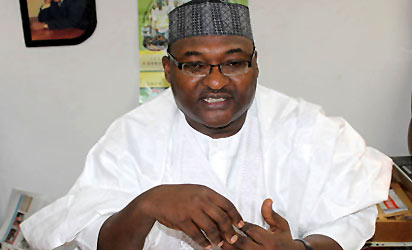…As NPCC holds one-day Seminar in Lagos
Stakeholders at a one day Seminar organized by the Nigerian Ports Consultative Council at the Eko Hotels and Suite Victoria Island, Lagos on Tuesday disagreed over the existence of a broad maritime policy as a working document for the Nigerian Maritime industry.
In a lecture entitled,” Technical and Economic Regulation for Enhanced Performance”, Barr. Emeka Akabogu stated that there was no coherent maritime policy for the entire nation.
Akabogu who said that the nearest attempt Nigeria had made at getting a Nigerian Maritime Policy was the repealed National Shipping Policy Act of 1987 however called for a framework that is consistent with certain goals of the industry.
According to him,” unfortunately, one cannot readily identify a coherent transport policy for Nigeria, much less a shipping or broad maritime policy for the whole of the country. The nearest, albeit semantically, was the repealed National Shipping Policy Act of 1987, the precursor to today’s NIMASA Act, which set out broad goals for Nigeria’s involvement in the international shipping trade”.
“Honed to the bone however, that Act simply set up the National Maritime Authority while codifying the country’s involvement in the UNCTAD 40: 40: 20 initiatives of the 1980s. Nonetheless, there is a responsibility to act and decide within a framework that is consistent with certain broad goals and this may be gleaned from several policy or legal documents that we have come to rely on over time. That is a safe starting point”.
Speaking on the matter, the Executive Secretary and Chief Executive Officer of the Nigerian Shippers’ Council (NSC), Barr. Hassan Bello disagreed with Akabogu on the ground that there had always been a maritime policy in the country only that they were not being recourse to.
Bello maintained that the maritime policy which according to him were all over the places were buried even as he also disagreed that lack of lack a legal framework was the bane of the Council as an economic regulator of the Nigerian ports.
“The distinction made by Asanga on regulation is always there, as it tilts to what Emeka said about maritime policy, I disagree with him. There has always been a maritime policy in Nigeria. It is buried all over”, he said.
The NSC boss also said that although that there was nothing wrong with having laws in place before putting up a regime, sometimes it was better to practice a regime before coming up with a law that would make it function better.
According to him,” sometimes, it is the practice that brings out the law and not the other way round. There is nothing wrong with that but sometimes, if you want to make better laws, you have to make practice. That’s why my criticism or little reservation about the cabotage Act”.
“The Cabotage Act which is the lawyers’ thing, it was passed on by lawyers and they went on and on to enact a law that could not be effective. Up till now, we are regretting that. The three component of the cabotage law was never going to be in existence. So, it is like legislating in vain”.
He however advised that in whatever law that was to be done in the industry, the stakeholders should be in the forefront rather than lawyers so as to instruct the lawyers on how to go about it.
“I know it is good to have concise policy written somewhere as laws and so on but this industry does not need external support to regulate itself and that is why we need to see it not as something about division, it has to be done collectively”, he said.
Earlier in a goodwill message, the Minister of Transport, Sen. Idris Umar noted that the Federal government was making effort to see that customers clear their cargo in time as it was working assiduously towards achieving the 48 hour cargo clearance at the ports.
Represented by the Permanent Secretary, Federal Ministry of Transport, Mallam Mohammed Sambo Bashar, Sen. Umar also said that the rate of insecurity in the ports had reduced and that the safety of lives and properties in the ports could be assured.
He said, “the phenomenon of congestion partly along the port access roads is receiving the attention of the Federal government as it is set to address this challenge via a multi-faceted approach to create for a truck park at the Trade Fair Complex which is a PPP initiative”.
Also in a welcome address, the Chairman, Nigerian Ports Consultative Council, Otunba Kunle Folarin averred that the seminar was tailored towards proffering a workable solutions to making the Nation’s ports competitive in terms of effective cost, adequate infrastructure and superstructure as well as a formidable regulatory mechanism in order to enhance the performance of the Nigerian ports and to reposition the place of the country within the West African Sub and global maritime trade domain in general.

